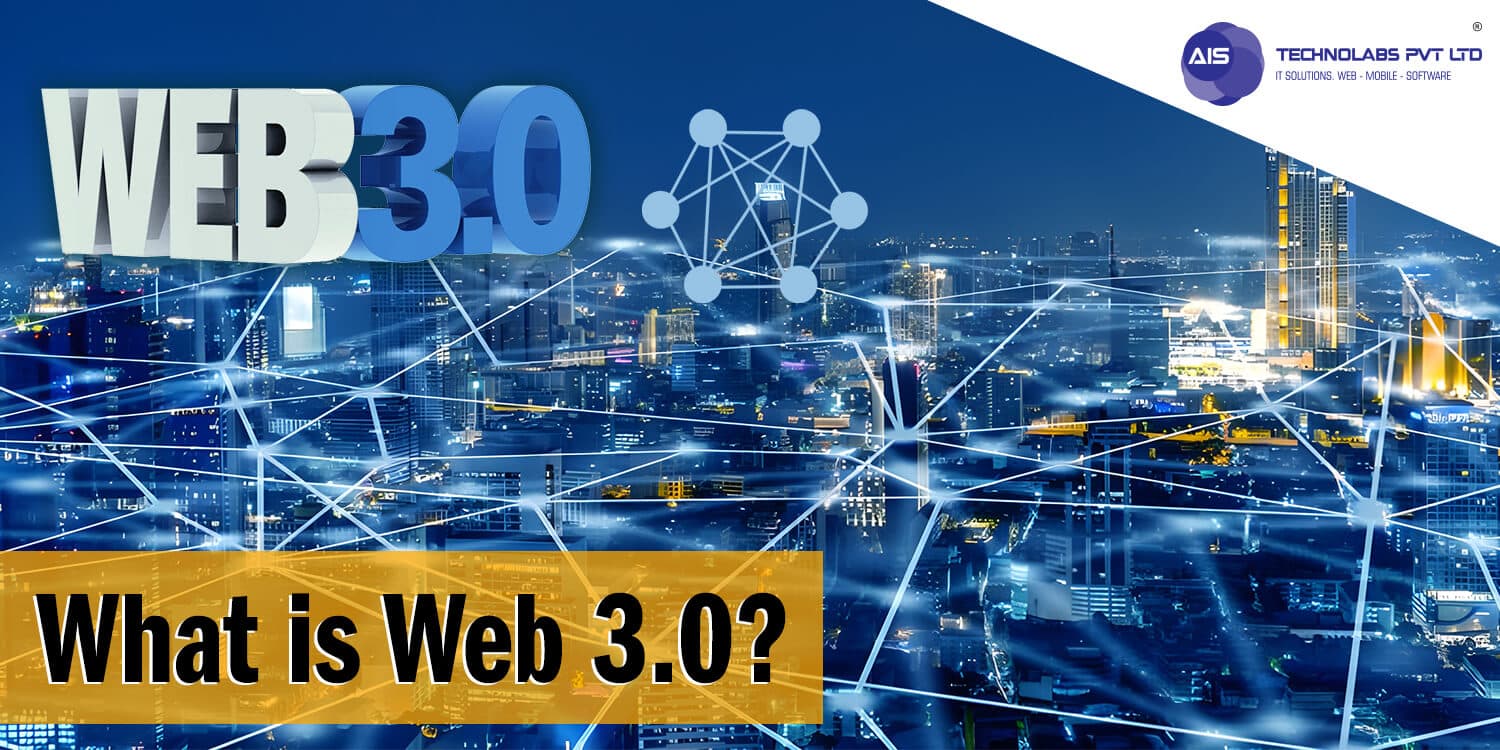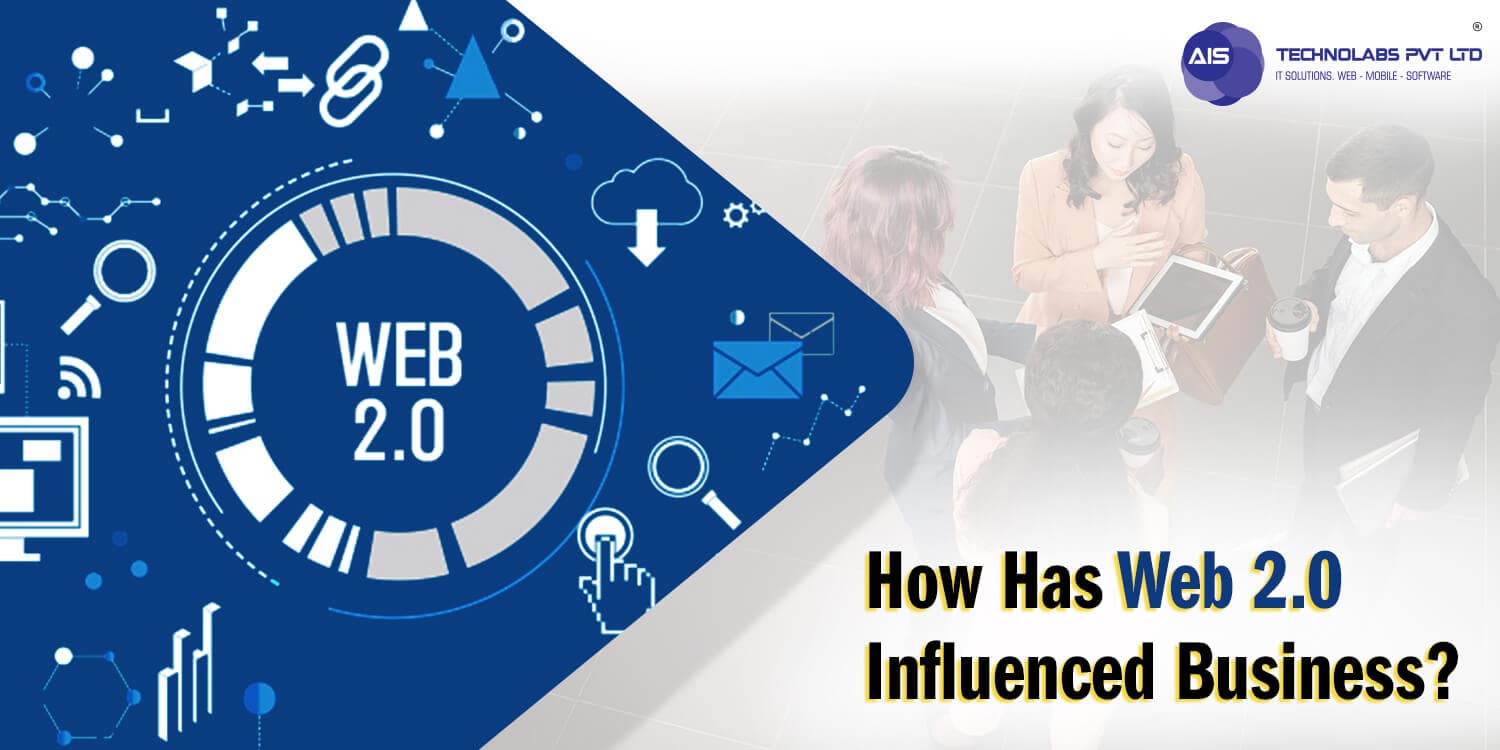Table of Content
(500 views)

Introduction
The internet has evolved significantly since its inception. Coordinated computer systems designed for scientists to share experience were soon dominated by Compuserve, Yahoo, AOL besides other portals. These service enterprises were the gateway to Web 1.0., wherein businesses, governments, and individuals started to consume content and post content at times.
Web 2.0 came as a platform where on the web itself software applications are built upon, and it has enabled users to contribute on social media in content creation. Web 2.0 predominantly relies on its consumers' participation in creating novel content as well as profile data.
Web 3.0 is the blend of Web 1.0 and Web 2.0 by summing machine intelligence.
What is Web 3.0?

Web 3.0 is a fair and transparent network, where users can interact without fear of losing data. This web version will make the internet more intelligent, as it brings the ability of Artificial Intelligence and big data together, to provide a more personalized web experience by analyzing users' data and behavior, at the same time making the web semantic. The amount of data is increasing day by day and Web 3.0 turns huge data into actionable insights. Web 3.0 powered by blockchain technology will make it more human, unlike Web 2.0.
Blockchain will lead the procedure of how data is collected as well as managed throughout the web. All the concentrated data will come together by the means of Artificial Intelligence and IoT to convert it into information, which can not be hacked.
Experts believe that Web 3.0 will facilitate a faster and more intuitive web experience. The learning curve will almost become non-existent since it will give users the ability to speak in natural language with a search engine, which is extremely powerful. Companies like Apple and Amazon are already using Web 3.0 AI technology through Siri and Alexa respectively.
Web 3.0 is the most secure web and serves as the single login to all Web 3.0 decentralized apps which are also known as Dapps. In place of data-driven conventional models, the Dapps driven web version facilitates the number of alternatives that consumers can interact with. Well-known Dapss are Brave, IFPS, Akasha, Status, Storj, etc.
Now, let's discuss the advantages of Web 3.0 in day to day life.
Web 3.0 Advantages
How Has Web 2.0 Influenced Business?

Web 2.0 is playing a pivotal role in business and has been able to increase productivity considerably. Web 2.0 lets organizations develop forms of business models, for instance, social networking or price comparing software. Organizations can utilize user-assisted content for adding value to their commercial services As network websites do. By Web 2.0 communication and collaboration were well served.
Most of the applications are manageable, cost-effective, and integrated with the organization's existing infrastructure, however, these applications pose some serious concerns regarding privacy and security. Persistent interruptions that have become normal in Web 2.0 will get eliminated by Blockchain-powered 3.0 as it provides complete ownership of data to their users.
We will discuss the Web 3.0 enabled browsers as well as websites, and how they can add value to your business.
Web 3.0 Browser
Brave 3.0 is all about privacy wherein end-users are not products, this browser comes with an ad-blocker. In exchange for cryptocurrencies, it allows users to sell their data. It is an interactive tool that everyone can explore. This browser is fast, secure, and has no security loopholes. End users can browse the internet privately without the fear of data loss or theft.
Web 3.0 Websites
For branding, Web 3.0 sites are essentials as it is one of the best sources for referral traffic. Websites based on Web 3.0 also enhance the website ranking in search engine results. Web 3.0 Websites, like LivePeer, which runs on Blockchain and has a decentralized platform. It facilitates open-source streaming services and aims to create a streaming stack for Web 3.0. No central dominance, smart contracts every user gets a chance to promote their content, and a transparent environment are the prime advantages of Web 3.0 Websites.
Impact of Web 3.0 on Business

Web 3.0 is the next evolution in the IT and computing world, along the similar trajectory that started with Web 1.0 and the present Web 2.0. However, we are witnessing Web 3.0 unfold, which will in due course terminate the demarcation line between digitalization and physical . Early-stage applications of Web 3.0 have already arrived. Now, this is high time for business owners to realize what this succeeding era of computing entails, how it can change the business dynamics and value as Web 3.0 unfolds.
Such concepts shall be realized, owing to the progress and convergence of enabling technologies comprising artificial intelligence/machine learning, augmented reality / virtual reality, geolocation, advanced networking such as 5G, blockchain, IoT devices, and sensors. Complete actualization of Web 3.0 may be a few years away, but there are a number of early stage applications that are ahead of time and driving substantial competitive advantages.
Understanding the capabilities of Web 3.0 can guide leaders to prepare better for the long term, and in a short span of time get more out of the current investment. The Web 3.0 era will glimmer new possibilities to enhance productivity and communication that we only can imagine. Web 3.0 has the potential to improve intuitive interactions and have the capability to provide conceptualized experiences for businesses and customers.
Recommendation for Pioneering Business Owners
- Need to embrace the highly integrated platform as they come into the market, Start looking to rationalize business operations. Build a bespoke system to future-proof your business.
- To optimize business operations, start experimenting with IoT and location-based sensors. From sensor technology, learning to handle data can prepare the business to manage any volume of data besides that it facilitates important insights. For Spatial Web, a variety of sensors will become the key input.
- Business owners should start to establish principles to enable interoperability across various applications.
- Businesses that are selling products and services need to think about how to bring business into the cloud.
- All apps have to be integrated without needing to duplicate work. This also means you need efficient apps rather than basic CRUD applications.
Conclusion
The areas which are impacted by Web 3.0 are ranging from retail to molecular medicine and even micro-businesses to massive corporations. It is essential for business leaders, politicians, and every other individual to comprehend the new horizon of opportunities and be prepared for the new era of business. Web 3.0 is a revolutionary evolution of the Web and not getting along with it might invite organizational risks. Web 3.0 is creating a more connected digital-centric society with the help of IoT so that a number of people can access the web without any complexities. At this time we are in an early stage of Web 3.0 technology but if you have searched something on google with natural language then you are already experiencing the advantage of Web 3.0
Subscribe to get New Updates!